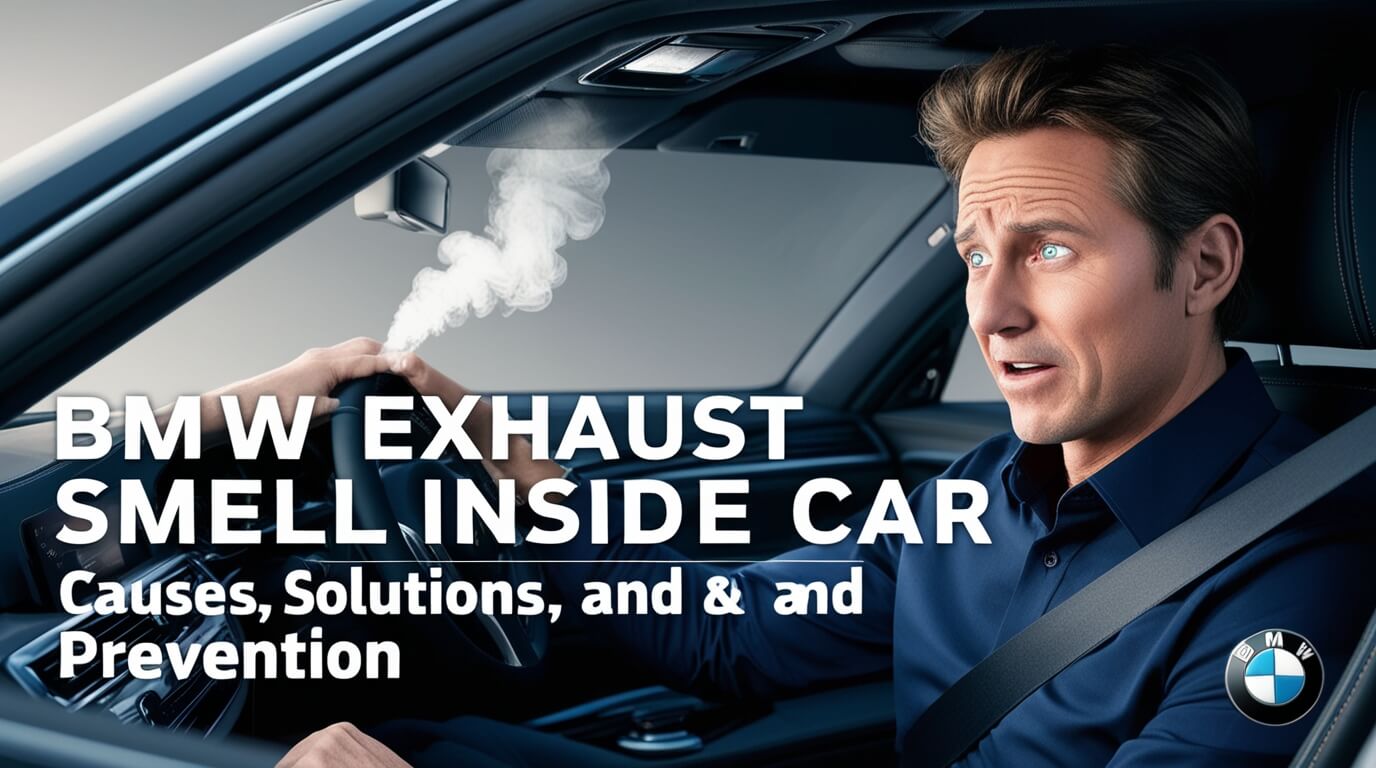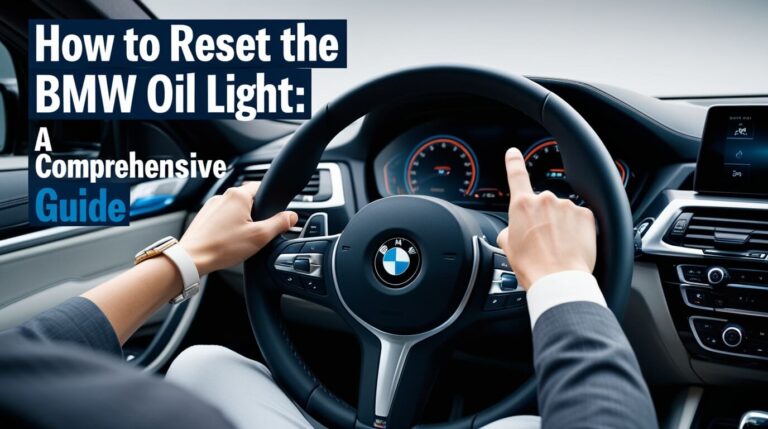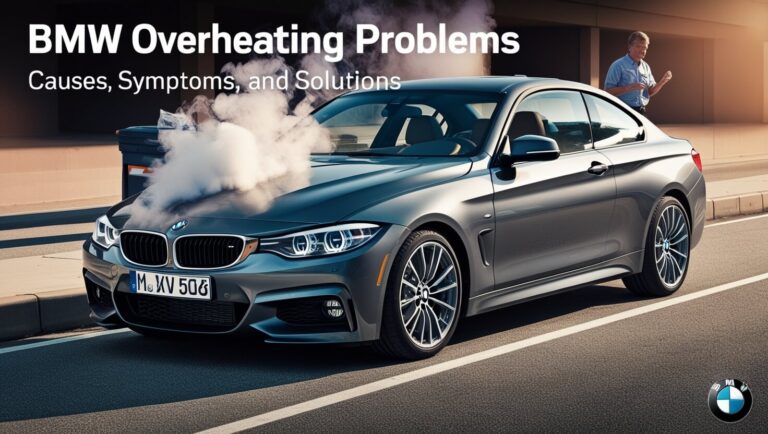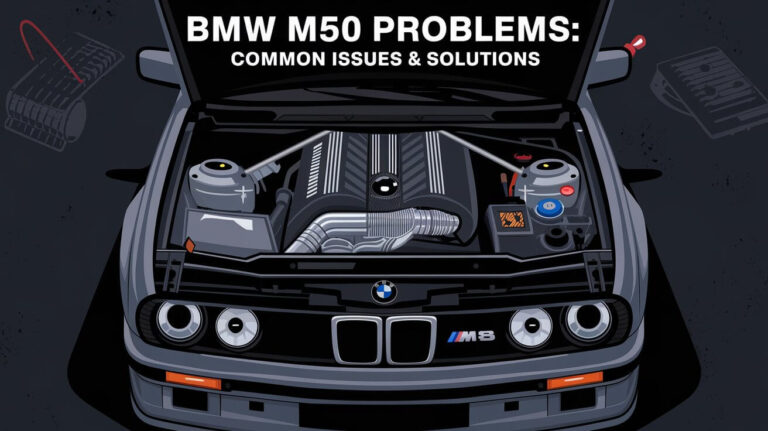
If you’ve noticed a BMW exhaust smell inside your car, you’re not alone. This common issue can be concerning, but it’s often fixable. The main causes of exhaust odor in BMW interiors include leaky exhaust systems, faulty gaskets, and HVAC problems. In this guide, we’ll explore why this happens, how to fix it, and ways to keep your BMW smelling fresh.
Understanding the Problem
Exhaust smells in your BMW can range from mildly annoying to potentially dangerous. Let’s dive into what’s causing that unwanted odor and how to spot it.
What Causes Exhaust Odor in BMW Interiors?
Several factors can lead to exhaust fumes entering your BMW’s cabin:
- Damaged exhaust components
- Worn-out gaskets and seals
- Clogged or failing cabin air filters
- Issues with the HVAC system
Each of these problems can allow exhaust gases to seep into your car’s interior, creating that unpleasant smell.
How to Identify Exhaust Smells in Your BMW
Recognizing the problem is the first step to fixing it. Here are some signs to watch for:
- A strong gasoline or diesel odor
- Sulfur-like smells (rotten egg scent)
- Burning plastic or rubber scents
- Increased odor when the AC or heat is on
If you notice any of these smells, especially when idling or at low speeds, it’s time to investigate further.
Common Causes of BMW Exhaust Smell Inside the Car
Let’s break down the main culprits behind that unwanted exhaust odor in your BMW.
Leaky Exhaust System Components
Your BMW’s exhaust system is designed to channel harmful gases away from the car. When parts of this system fail, those gases can find their way into the cabin. Common issues include:
- Cracked exhaust manifolds
- Damaged catalytic converters
- Holes in the exhaust pipe
- Loose connections between exhaust components
Any of these problems can lead to exhaust fumes entering your car’s interior.
Faulty Gaskets and Seals
Gaskets and seals play a crucial role in keeping exhaust gases where they belong. When they wear out or fail, they can let fumes slip into areas they shouldn’t. Key areas to check include:
- Valve cover gaskets
- Exhaust manifold gaskets
- Oil pan gaskets
- Crankcase ventilation system seals
These components often degrade over time, especially in older BMWs.
Issues with the Cabin Air Filter
Your BMW’s cabin air filter helps keep outside pollutants from entering the car. When it gets clogged or damaged, it can’t do its job properly. This might allow exhaust fumes to enter through the ventilation system.
Problems with the HVAC System
The heating, ventilation, and air conditioning (HVAC) system in your BMW can sometimes be the culprit. Issues here might include:
- Damaged seals around the HVAC unit
- Malfunctioning recirculation flaps
- Cracks in the HVAC housing
These problems can create pathways for exhaust fumes to enter the cabin.
Diagnosing BMW Exhaust Smell Issues
Before you can fix the problem, you need to find its source. Here’s how to start your detective work.
DIY Inspection Techniques
You can perform some basic checks at home:
- Visual inspection: Look for obvious damage to the exhaust system.
- Smell test: Try to pinpoint where the odor is strongest.
- Smoke test: With the engine running, have someone hold a cloth over the exhaust pipe (carefully!) while you look for escaping smoke elsewhere.
Remember, safety first. If you’re not comfortable doing these checks, it’s best to leave it to the pros.
When to Seek Professional Diagnosis
Some issues require expert knowledge and specialized tools. Consider professional help if:
- You can’t locate the source of the smell
- The problem persists after basic checks
- You notice performance issues along with the smell
- There’s visible damage to exhaust components
A BMW specialist can perform detailed diagnostics to pinpoint the exact cause of the exhaust smell.
Solutions for Eliminating Exhaust Odor in BMW Interiors
Once you’ve identified the cause, it’s time to fix it. Here are some common solutions:
Repairing Exhaust System Leaks
If the exhaust system is the culprit, repairs might include:
- Patching small holes or cracks
- Replacing damaged exhaust pipes
- Fixing loose connections
- Installing new catalytic converters
The specific repair will depend on where the leak is located and how severe it is.
Replacing Worn Gaskets and Seals
Faulty gaskets and seals usually need replacement. This might involve:
- Installing new valve cover gaskets
- Replacing exhaust manifold gaskets
- Changing oil pan gaskets
- Updating crankcase ventilation seals
These repairs can be tricky, so consider professional help if you’re not confident in your DIY skills.
Addressing HVAC and Cabin Air Filter Problems
For HVAC-related issues, solutions might include:
- Replacing the cabin air filter
- Fixing damaged HVAC seals
- Repairing or replacing faulty recirculation flaps
- Addressing cracks in the HVAC housing
Regular maintenance of your HVAC system can prevent many of these issues from occurring.
Preventing Future Exhaust Smells in Your BMW
An ounce of prevention is worth a pound of cure, especially when it comes to car maintenance.
Regular Maintenance Tips
Keep your BMW smelling fresh with these preventive measures:
- Follow the recommended service schedule
- Replace the cabin air filter regularly
- Inspect exhaust components during oil changes
- Address small issues before they become big problems
Staying on top of maintenance can save you money and headaches in the long run.
Early Warning Signs to Watch For
Catch problems early by staying alert for:
- Unusual engine noises
- Decreased fuel efficiency
- Check engine light coming on
- Vibrations while driving
These signs might indicate developing issues that could lead to exhaust smells if left unchecked.
Impact of Exhaust Fumes on Health and Safety
Exhaust smells in your BMW aren’t just unpleasant – they can be dangerous too.
Potential Health Risks
Exposure to exhaust fumes can lead to:
- Headaches and dizziness
- Nausea
- Irritation of eyes and respiratory system
- Long-term health issues with prolonged exposure
It’s crucial to address exhaust smell issues promptly to protect your health.
Safety Concerns While Driving
Exhaust fumes in the cabin can also pose safety risks:
- Decreased alertness due to fume inhalation
- Impaired judgment
- Potential for carbon monoxide poisoning
Never ignore persistent exhaust smells in your BMW. Your safety on the road depends on it.
BMW Models Most Prone to Exhaust Smell Issues
While any BMW can develop exhaust smell problems, some models seem more susceptible.
Common BMW Series Affected
Exhaust odor issues have been reported across various BMW series, including:
- 3 Series (especially E90 models)
- 5 Series (notably E60 and F10 generations)
- X3 and X5 SUVs
- 7 Series (particularly older models)
These trends don’t mean other BMWs are immune, but they’re worth noting if you own or are considering one of these models.
Model-Specific Considerations
Different BMW models may have unique weak points:
- Some 3 Series models are prone to valve cover gasket leaks
- Certain X5 models have had issues with exhaust flex pipes
- Older 7 Series might experience more frequent exhaust manifold gasket failures
Knowing your model’s potential weak spots can help you stay ahead of problems.
DIY vs. Professional Repairs: What You Need to Know
Deciding whether to tackle repairs yourself or seek professional help is crucial.
When to Attempt DIY Fixes
You might consider DIY repairs for:
- Replacing the cabin air filter
- Tightening loose exhaust connections
- Performing basic inspections
These tasks are often straightforward and require minimal specialized tools.
Benefits of Professional BMW Service
Professional service is advisable for:
- Complex exhaust system repairs
- HVAC system issues
- Engine-related problems
- When you’re unsure of the cause
BMW specialists have the expertise and equipment to diagnose and fix tricky issues accurately.
Cost Considerations for Fixing BMW Exhaust Smells
Understanding potential costs can help you plan for repairs.
Estimating Repair Costs
Repair costs can vary widely depending on the issue:
- Cabin air filter replacement: $50-$100
- Exhaust pipe repair: $100-$500
- Catalytic converter replacement: $500-$2500
- Major engine work: $1000+
These are rough estimates. Your actual costs may differ based on your location and specific BMW model.
Long-Term Savings of Prompt Repairs
While repairs can be costly, addressing issues promptly can save money in the long run by:
- Preventing more extensive damage
- Improving fuel efficiency
- Maintaining your BMW’s resale value
- Avoiding potential health and safety risks
Consider the cost of repairs an investment in your BMW’s longevity and your well-being.
Conclusion: Ensuring a Fresh and Safe BMW Interior
Dealing with a BMW exhaust smell inside your car can be frustrating, but it’s a solvable problem. By understanding the causes, recognizing the signs, and taking prompt action, you can keep your BMW’s interior smelling fresh and safe.
Remember, regular maintenance is key to preventing many exhaust odor issues. If you do notice a problem, don’t hesitate to investigate or seek professional help. Your BMW – and your nose – will thank you for it.
Stay alert, stay safe, and enjoy that signature BMW driving experience without any unwanted odors along for the ride.






